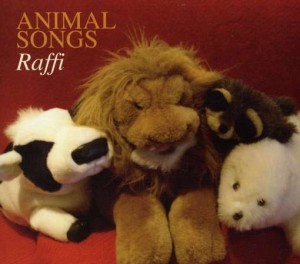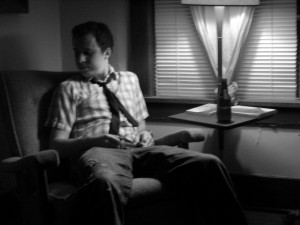 Let me know anything you may want to know about Chicago O’Hare Airport’s Terminal 2 because after visiting it eight times in under three weeks I think I know a good deal about it. There’s a McDonald’s at the terminal’s groin over there; a Chili’s Too where a bartender named George (pretty sure, who bears a rounder resemblance to Brad Garrett) will encourage you not to wait in line for a single table but rather hop up to the bar—single seats! single seats! c’mon folks!—and eventually he’ll convince you it’s the right place to sit, despite your bags you refuse to check, and then there’s a quite shitty Fox Sports Net restaurant where the employees yell at each other. Which of course is probably a carefully planned part of the experience, given the restaurant’s parent company. The going rate in winter 2010 for a men’s shoeshine is $6. The going rate at the Brookstone for an iPod charger is $38. You can’t buy large Cadbury bars for your sweetheart on Valentine’s Day at the Duty Free counter just down from the shoeshine bench unless you’re off to Canada (on Air Canada which departs from gates E1 and E2), but there’s a kind of news & gift kiosk on your way to Terminal 1 (pictured in blue) which sells chocolates to domestic travelers at reasonable rates. Something called Johnny Rockets exists over there. Also: broad, great looking men who wear their khakis well that entreat you into conversation with the enticing offer of a free flight, and but by the time you understand these men are talking to you you’re too many steps along your path to comfortably pause and turn themward, and when you glance back in some kind of apology you realize they want just for you to sign up for a credit card, and not, like, your life story or darkest fears.
Let me know anything you may want to know about Chicago O’Hare Airport’s Terminal 2 because after visiting it eight times in under three weeks I think I know a good deal about it. There’s a McDonald’s at the terminal’s groin over there; a Chili’s Too where a bartender named George (pretty sure, who bears a rounder resemblance to Brad Garrett) will encourage you not to wait in line for a single table but rather hop up to the bar—single seats! single seats! c’mon folks!—and eventually he’ll convince you it’s the right place to sit, despite your bags you refuse to check, and then there’s a quite shitty Fox Sports Net restaurant where the employees yell at each other. Which of course is probably a carefully planned part of the experience, given the restaurant’s parent company. The going rate in winter 2010 for a men’s shoeshine is $6. The going rate at the Brookstone for an iPod charger is $38. You can’t buy large Cadbury bars for your sweetheart on Valentine’s Day at the Duty Free counter just down from the shoeshine bench unless you’re off to Canada (on Air Canada which departs from gates E1 and E2), but there’s a kind of news & gift kiosk on your way to Terminal 1 (pictured in blue) which sells chocolates to domestic travelers at reasonable rates. Something called Johnny Rockets exists over there. Also: broad, great looking men who wear their khakis well that entreat you into conversation with the enticing offer of a free flight, and but by the time you understand these men are talking to you you’re too many steps along your path to comfortably pause and turn themward, and when you glance back in some kind of apology you realize they want just for you to sign up for a credit card, and not, like, your life story or darkest fears.
Much of my February’s been spent there. I’ve been traveling, meeting people in English departments around the country to mutually assess one another on whether I’d be a good fit among their faculty. It’s looking good that I’ll’ve signed a contract for a job by the end of this week, but in the meantime mum’ll’ve to be the word.
If I get hired I’m going to be hired in nonfiction, hired as a writer and teacher of nonfiction. This makes sense given the pending publication of The Authentic Animal, but is also crazy given the rest of my publishing record. I’ve got an essay in a journal, an excerpt from the book. I’ve got journalism written chiefly in the previous century. I’ll’ve (okay, sorry) graduate students to teach things to, and it’s clear I’ll need to bone up on my reading. Memoir is a genre I know of much like I know of Ayn Rand—i.e., through the harsh or loving words of others.
So I’ll be beginning a program of sorts soon, reading through canonical works of nonfiction, such as they may exist. I’ve got the Modern Library list to start with, but therein lies a list void of Didion and so how much serious attention can really be paid it? In Cold Blood, The Liar’s Club, the works of Gay Talese, the anthologies edited by John D’Agata—all are at the top of the list, some as rereads.
You, reader: any others? What vital nonfiction is out there?
 I like to listen to music when I write. I used to hate this, but now that I write first thing in the morning, it helps get me going. I like also not to have to worry about what sort of music I want to listen to. Usually when working on a short story, I figure out quickly which album I want playing in the background, and then stick with it for the whole project.
I like to listen to music when I write. I used to hate this, but now that I write first thing in the morning, it helps get me going. I like also not to have to worry about what sort of music I want to listen to. Usually when working on a short story, I figure out quickly which album I want playing in the background, and then stick with it for the whole project.













